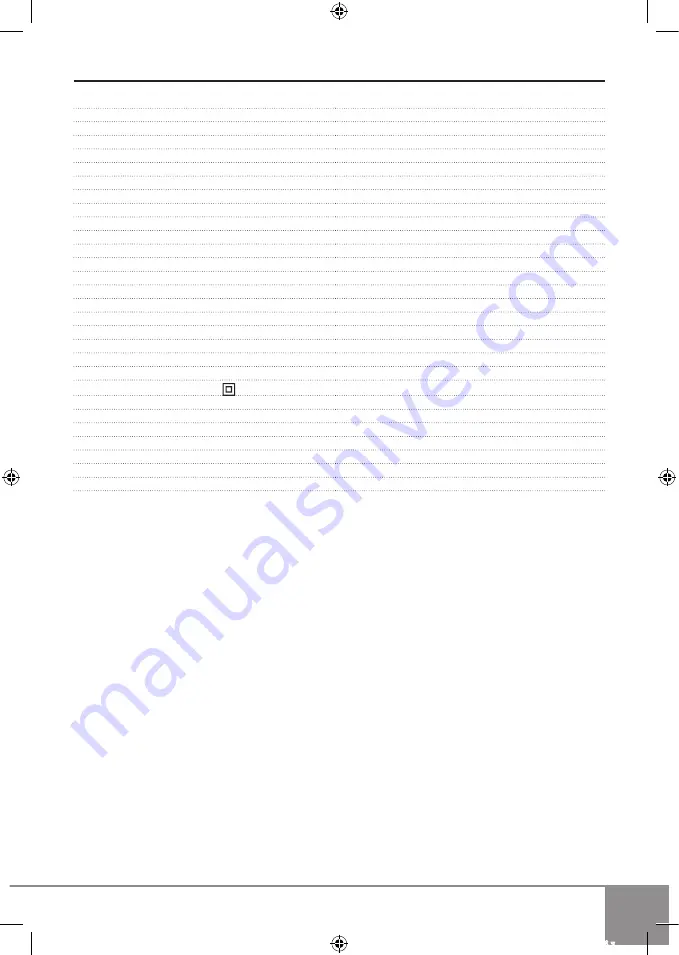
3
Original instructions
EN
II - Technical specifications
Model
TV 2245
▪
Power input
2200 W
▪
No load speed
7600 min
-1
▪
Speed at max. power
13.5 m/s
▪
Guide bar length
45 cm
▪
Usable cutting length
41.5 cm
▪ Guide bar, type
Oregon 180SDEA041 / 180SCEA041 and compatible
▪ Drive sprocket
6 teeth
▪ Low-kick-back chain, type
Oregon 91PJ062X and compatible
▪
Chain pitch
9,53 mm (3/8”)
▪ Number of drive links
62
▪
Chain gauge
1,27 mm (0,05”)
▪
Oil tank capacity
200 ml
▪
Chain brake
Yes
▪
Mean braking time at racing speed
0.10 s
▪
Cable length
0,25 m
▪
SDS-system for chain tensioning
Yes
▪
Automatic chain lubrication
Yes
▪
Spiked bumper
Yes
▪
Chain catcher
Yes
▪
Weight (EPTA Procedure 01/2003)
5,9 kg
▪
Safety class (EN 60745-1)
II
▪ A-weighted sound pressure level L
PA
83 dB (A)
▪ Uncertainty К
3
▪ A-weighted sound power level L
WA
103 dB (A)
▪ Uncertainty К
3
▪ Guaranteed sound power level
104 dB (A)
▪ Vibration emission value * a
h
2.4 m/s
2
▪ Uncertainty К
1,5
* The vibration emission values are determined according to 6.2.7 EN 60745-1.
The vibration emission level given in this information sheet has been measured in accordance with a standardised test
given in EN 60745 and may be used to compare one tool with another. It may be used for a preliminary assessment of
exposure.
The declared vibration emission level represents the main applications of the tool. However if the tool is used for dif
-
ferent applications, with different accessories or poorly maintained, the vibration emission may differ. This may signifi
-
cantly increase the exposure level over the total working period.
An estimation of the level of exposure to vibration should also take into account the times when the tool is switched
off or when it is running but not actually doing the job. This may significantly reduce the exposure level over the total
working period.
Maintain the power tool and the accessories and keep your hands warm during operation to reduce the harmful effect
of vibrations.
Dust from material such as paint containing lead, some wood species, minerals and metal may be harmful. Contact
with or inhalation of the dust may cause allergic reactions and/or respiratory diseases to the operator or bystanders.
Certain kinds of dust are classified as carcinogenic such as oak and beech dust especially in conjunction with additives
for wood conditioning (chromate, wood preservative). Material containing asbestos must only be treated by specialists.
The use of a dust mask of filter class P2 is recommended.
Follow national requirements for the materials you want to work with.
pages-TV-2245.indd 3
15.5.2012 г. 09:59:28 ч.
Та
ше
в
-
Га
лв
ин
г
ОО
Д
www.tashev-galving.com






































